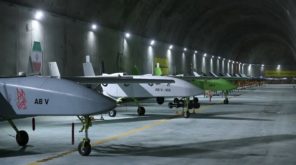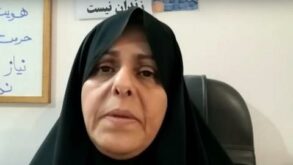Al-Arabia – For years, Iran has repeatedly threatened to attack the Israeli city of Haifa.
On Sunday, the city was again discussed as a target when an Iranian newspaper urged the government to attack Haifa if Israel is found to be behind the killing of an Iranian nuclear scientist.
Read more: Iranian media says Israeli arms were used to assassinate Mohsen Fakhrizadeh
While Haifa may be the third largest city in Israel, in the eyes of the Iranian regime it is the primary target due to its economic significance and proximity to Lebanon, experts say.
‘Economic heart’ of Israel
Tehran believes Haifa is the “most critical business center of Israel,” according to Saeed Ghasseminejad, a senior Iran advisor at the Washington think tank Foundation for Defense of Democracies (FDD).
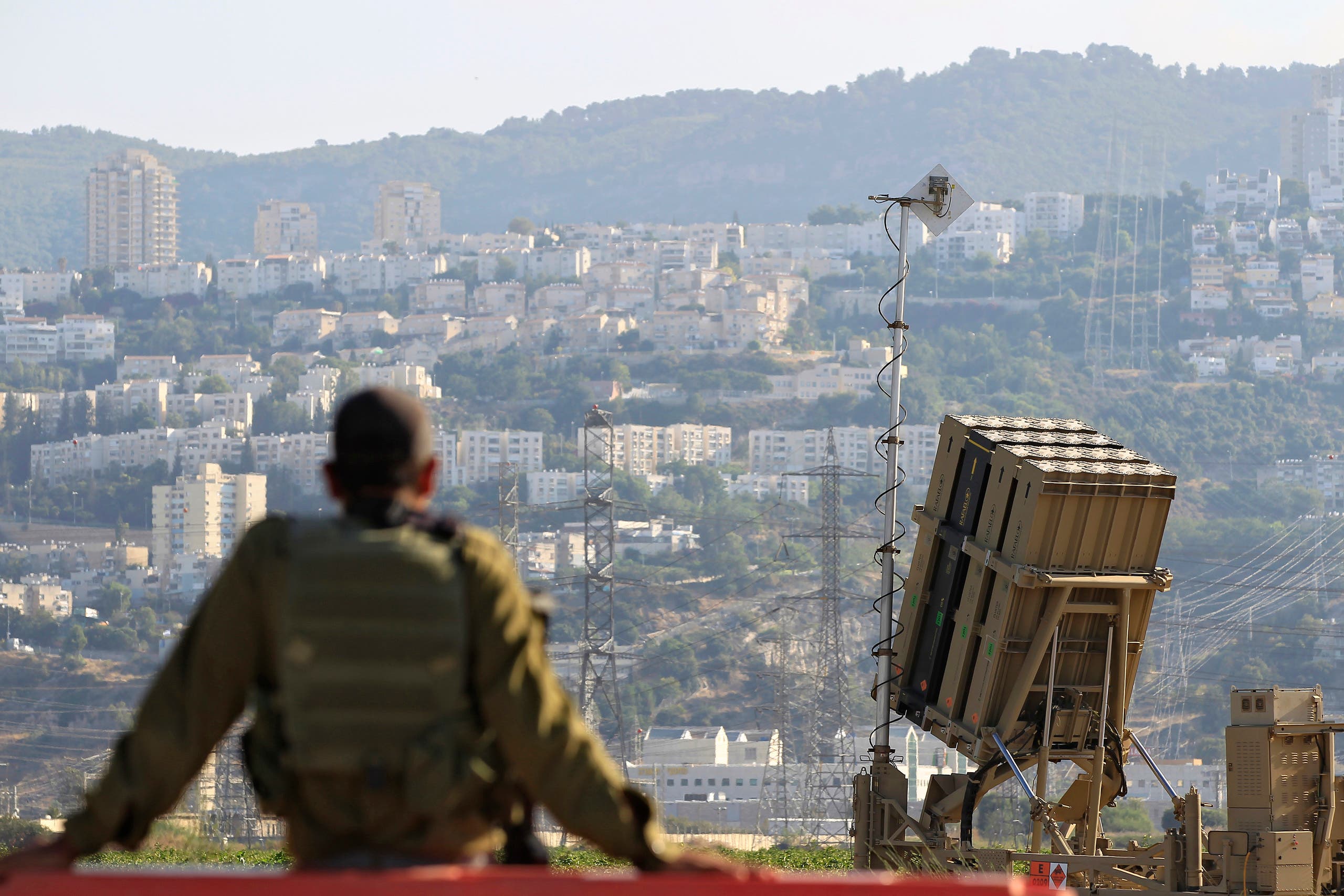
An Israeli soldier is seen next to an Iron Dome rocket interceptor battery deployed near the northern Israeli city of Haifa on Aug. 28, 2013. (AP)
Iran’s Tasnim news agency, close to the Iranian Revolutionary Guards Corps (IRGC), published an article highlighting the economic importance of the city in December 2014.
Haifa is Israel’s most important city, the piece claimed, adding that the city “has been dubbed the economic heart of the Israeli regime.”
Read more: US condemns ISIS call to attack Saudi Arabia: Official
The article, titled “Five vital arteries of Israel in Haifa that are within the range of Hezbollah’s Iranian missiles,” listed five sites in the city as key targets: the port of Haifa, a petrochemical complex, an electricity company, the Matam Hi-Tech and Business Park, and a railway network.
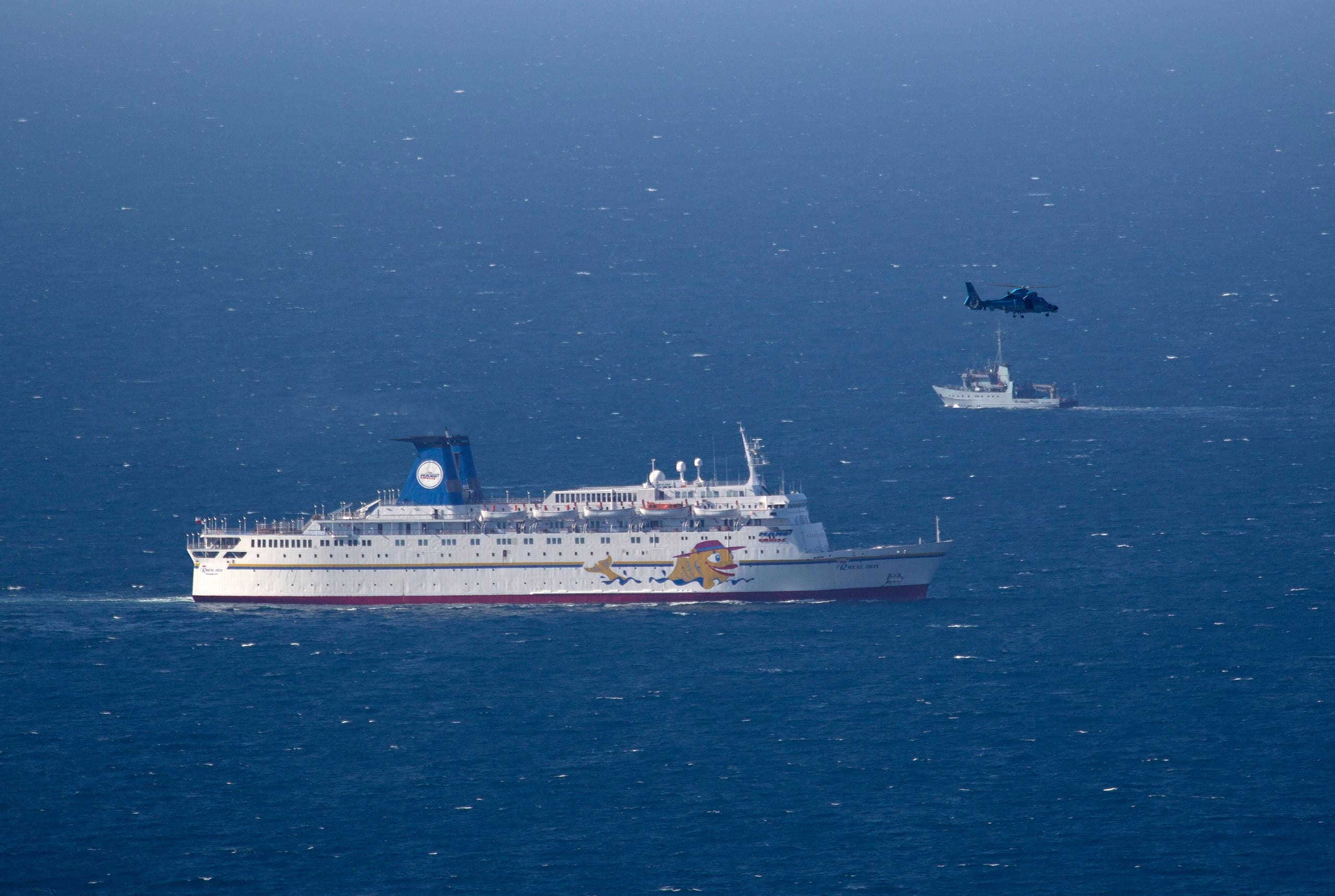
An Israeli military naval ship and an Israeli air force helicopter operate next to a cruise ship off the coast of Haifa on April 25, 2013. (AP)
Haifa is known to be Israel’s most ethnically diverse city with a mixed Jewish-Arab population, but the most important characteristic of the city to the Iranian regime is its large petrochemical industrial facilities, according to Israeli expert Dan Arbell.
“If the facilities were hit, it may lead to many casualties as the result of the spread in the air of chemicals, fumes, and toxic material,” Arbell, an associate fellow at the International Institute for Strategic Studies (IISS) told Al Arabiya English.
Proximity to Lebanon
Hezbollah, Iran’s main proxy organization located in Israel’s neighbor Lebanon, attacked Haifa in 2006 with a rocket barrage that killed eight people.
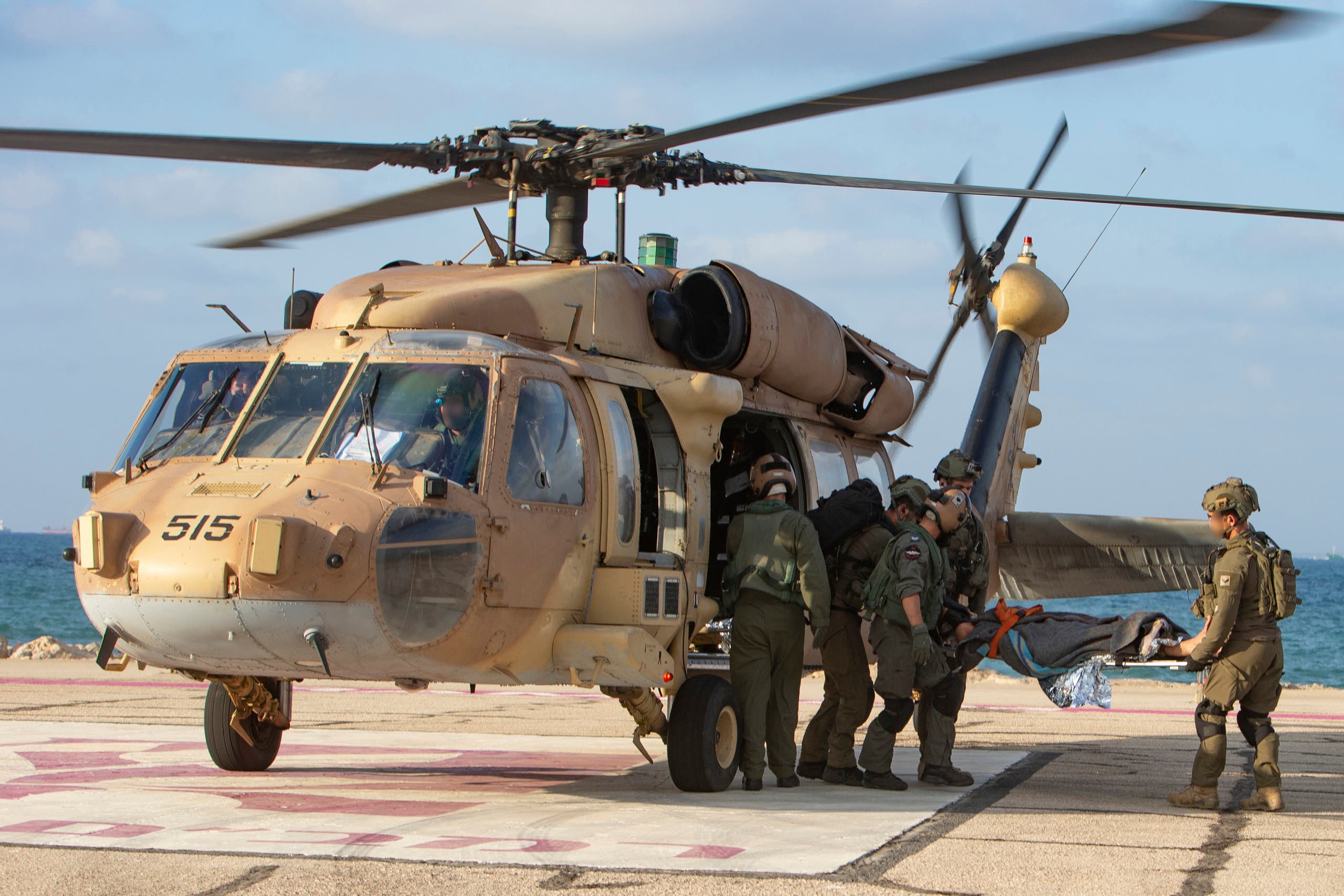
Israeli paramedics and soldiers evacuate a mock wounded comrade at a helipad in Ramban hospital in the Mediterranean city of Haifa on September 1, 2019 as part of a deception operation of the Israeli army in order to mislead the leadership of Lebanese Hezbollah. (File photo: AP)
Ten years later, Hezbollah leader Hassan Nasrallah suggested striking Haifa again, specifically its stores of ammonium nitrate.
Haifa, located in the north of Israel, is closer to Lebanon and therefore viewed as more vulnerable by Iran and Hezbollah than major central or southern Israeli cities, according to former Israeli Defense Forces Colonel Miri Eisin.
“The perceived Hezbollah capabilities with missiles and precise guiding systems – all supplied by Iran – would be more effective against the northern locations in Israel,” Eisin said in an interview with Al Arabiya English.
Read more: Watch: Hezbollah chief explains explosion scenario similar to Beirut blast
It is Haifa’s proximity to Lebanon that makes it more practical for Iran or its proxy Hezbollah to carry out a missile attack against it, according to Ghasseminejad.
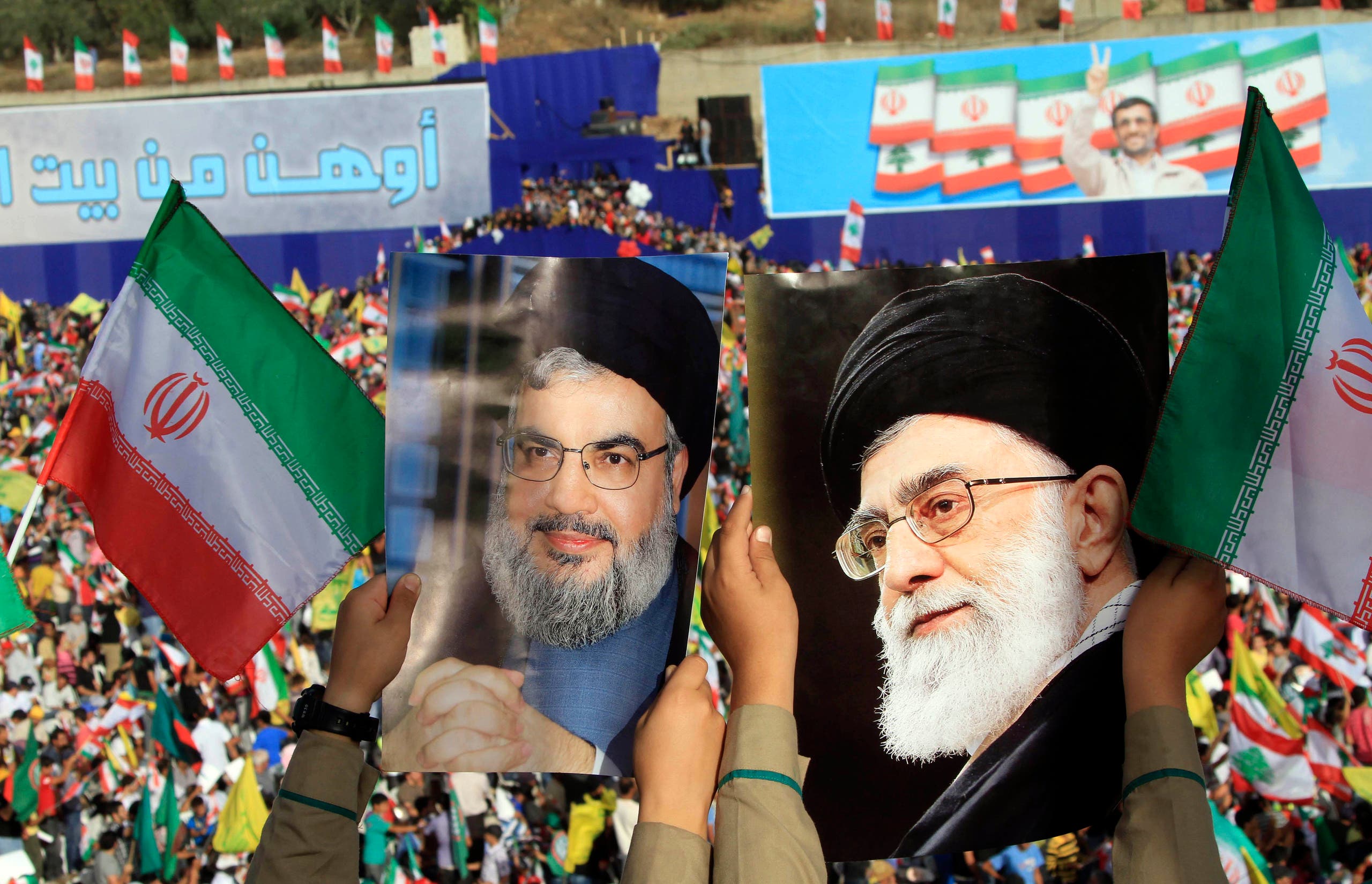
Two boys carry pictures of Hezbollah leader Hassan Nasrallah, left, and Iranian Supreme Leader Ali Khamenei, right, as thousands of Hezbollah supporters gather in a soccer field to listen to Iranian President Mahmoud Ahmadinejad ‘s speech during a rally in the southern town of Bint Jbeil, Lebanon on Oct. 14, 2010. (AP)
“We know as the distance from targets increases, Iran-manufactured missiles become less reliable,” Ghasseminejad said in an interview with Al Arabiya English.
Iran’s threats against Haifa
The most recent threat against Haifa came from hardline Iranian newspaper Kayhan, which is run by Hossein Shariatmadari, a representative of Iranian Supreme Leader Ali Khamenei.
The newspaper published an op-ed on Sunday that suggested that if Israel was found to have killed the prominent Iranian nuclear scientist Mohsen Fakhrizadeh, then Iran should attack Haifa to destroy facilities and cause “heavy human casualties.”
Fakhrizadeh died on Friday due to injuries sustained during a shoot-out between his bodyguards and “armed terrorists,” according to Iran’s defense ministry.
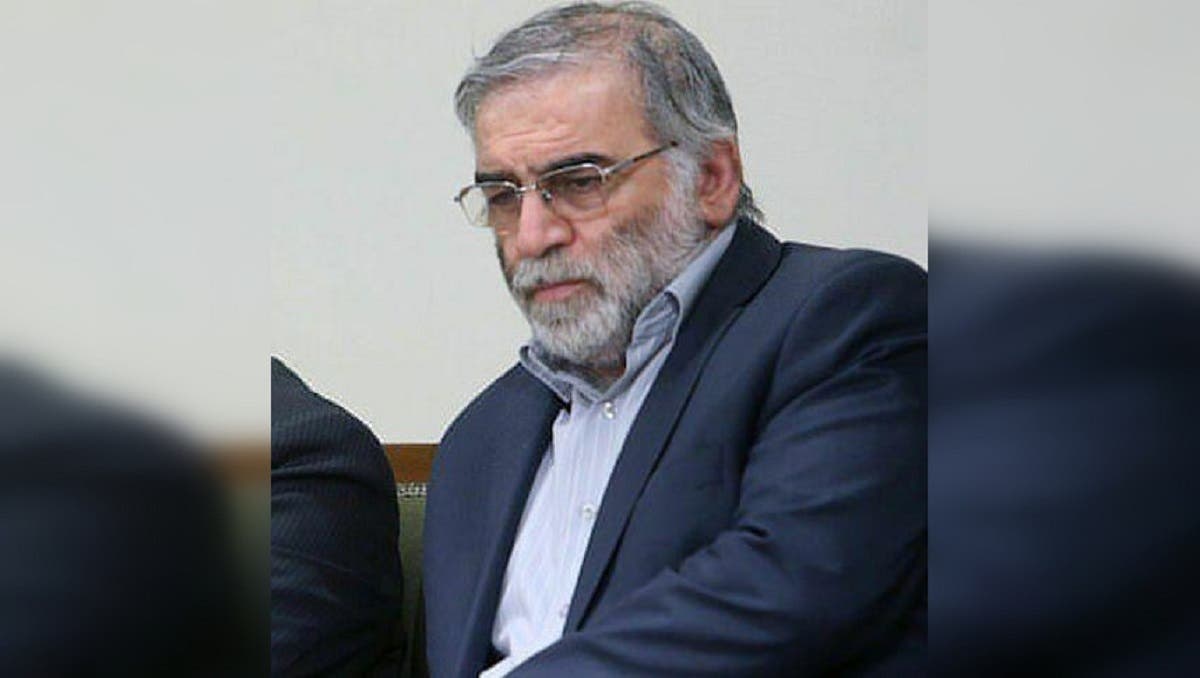
An updated photo of Iranian nuclear scientist Mohsen Fakhrizadeh. (Twitter)
The newspaper threat echoed Khamenei’s statements in 2013, when he said in a publicized speech that if Israel were to “make the slightest mistake, the Islamic Republic will raze Tel Aviv and Haifa to the ground.”
Earlier this year, a former IRGC chief said that Iran’s “revenge against America” will include the targeting of Haifa and Israeli military centers after the US ordered a drone strike that killed top Iranian military commander Qassem Soleimani in January.
 Shabtabnews In this dark night, I have lost my way – Arise from a corner, oh you the star of guidance.
Shabtabnews In this dark night, I have lost my way – Arise from a corner, oh you the star of guidance.
